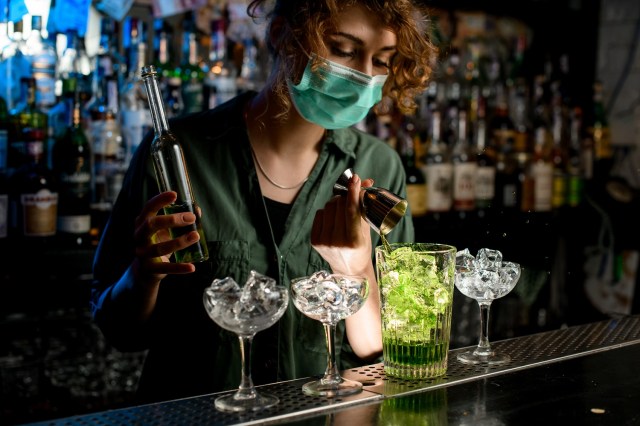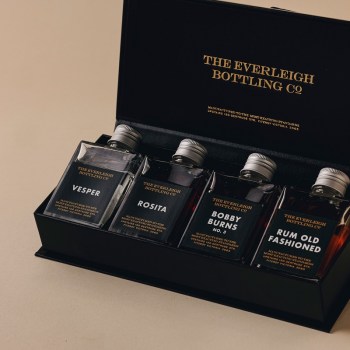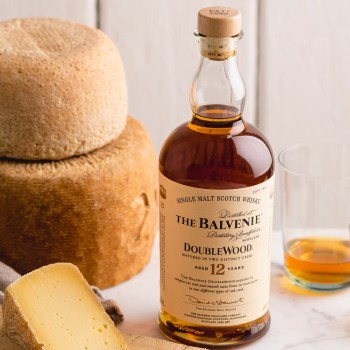With domestic borders gradually opening up and the Omicron wave forcing governments into new changes, Bars and Clubs brings you the latest information on what the operating restrictions are for each state and territory.
Australian Capital Territory
COVID-19 Safety Plans must be prepared by certain businesses and able to be produced if requested by an authorised officer.
Venues and events must continue to use the Check in CBR app, including the building and construction sector.
Paper records are not permitted to be used to collect patron details. Businesses are required to use the Business Profile function of the Check In CBR app going forward.
Any person aged 12 years or older must wear a face mask in indoor settings (other than a place of residence).
A person is not required to wear a face mask if they have a physical or mental health illness or condition, or disability, which makes wearing a face mask detrimental to their condition.
Density limits of one person per two square metres will apply for all indoor spaces (excluding staff).
Hospitality and licensed venues
- 25 people across the venue before density limits apply (exc staff).
- If businesses wish to have more than 25 people, they can apply:
- One person per two square metres per usable indoor space (exc staff).
- No density limits apply to outdoor spaces.
- Patrons must be seated while eating and drinking. This applies to indoor and outdoor spaces.
- Dancing is not permitted.
- Venues to display a sign at the entrance of each space specifying occupancy limit for any indoor spaces.
Night clubs
- 25 people across the venue before density limits apply (exc staff).
- If businesses wish to have more than 25 people, they can apply:
- One person per two square metres per usable indoor space (exc staff).
- No density limits apply to outdoor spaces.
- Patrons must be seated while eating and drinking. This applies to indoor and outdoor spaces.
- Dancing is not permitted.
- Venues to display a sign at the entrance of each space specifying occupancy limit for any indoor spaces.
New South Wales
Anyone can visit a restaurant, café, hospitality venue or nightclub.
- Customers and staff are not required to be fully vaccinated or carry vaccination evidence.
- COVID-19 Safe Check-in is required at all hospitality venues and nightclubs.
- Face masks are required, subject to exemptions.
NSW Health strongly advises that patrons consider being seated while drinking.
Effective 8 January 2022, singing and dancing in hospitality venues and nightclubs will not be permitted other than for:
- a performer who is performing or rehearsing on the premises; or
- a person who is instructing, or being instructed, in singing or dancing on the premises; or
- it’s for a wedding service or reception that is being held at a hospitality venue including a function centre.
Occupiers must ensure that patrons do not sing or dance unless the patrons are performing, rehearsing, being instructed in singing or dancing, or are part of a wedding service or reception.
Retail and businesses are no longer required to have a COVID-19 Safety Plan.
Optional COVID-19 Safety Plans are available to help best keep a safe environment for staff and customers.
Occupiers of hospitality venues
Examples of hospitality premises include casinos, restaurants, cafes, function centres, food courts, take away food and drink premises, kiosks, micro-breweries or small distilleries, cellar doors, pubs, registered clubs and small bars.
- There are no restrictions on the number of people allowed at hospitality venues or nightclubs, however indoor density limits of 1 person per 2 square metres applies.
- Drinking indoors and outdoors may be seated or standing.
- There is no limit on the number of people for a group booking.
Occupiers of pubs, registered clubs and small bars must take reasonable steps to ensure that each person who enters their premises completes a COVID-19 Safe Check-in when entering the premises.
Northern Territory
The Chief Health Officer (the CHO) has placed requirements on the operation of businesses and organisations including restaurants, cafes, pubs and bars (a food business) to help reduce the risk of COVID-19 being transmitted. Full details are on the NT Government website.
In addition:
- From 6pm on 29 January 2022 to 5 February 2022, masks must be worn when outside and within 1.5m of others who are not members of your household.
- The indoor mask mandate continues. You must wear a mask while indoors when you cannot maintain a distance of 1.5 metres from other people.
- This includes pubs, clubs, restaurants, shopping centres, hairdressers, workplaces, public transport, taxi cabs, ride share and indoor boat cruises.
You will now need to show proof of vaccination when visiting certain venues.
The venues are:
- Bars, pubs and nightclubs licensed to sell and consume liquor on premises
- Clubs licensed to sell and consume liquor on premises
- Casinos and licensed gaming venues
- Restaurants with a liquor licence
- Cinema, theatre, concert, music or dance hall.
- The requirement does not impact: take away food or beverages; food court, food truck, market stall or casual dining café that operates without a liquor licence.
If you are not fully vaccinated you cannot visit above venues.
Persons who check-in at a venue using the Territory Check In app, will be sent a notification if they were at a location at the same time as a person who recently tested positive for COVID-19.
Notifications are issued when a new exposure site becomes known and is relevant to the locations in the recipient’s history in The Territory Check In app. Only one notification is sent to an individual each day, even if they have visited multiple exposure sites in one day.
If you receive a notification, monitor for symptoms. If you develop any COVID-19 symptoms, get tested. If you test positive for COVID-19, you must declare your result online, isolate immediately and register for COVID CareNT.
Queensland
From Sunday 2 January 2022, you must wear a mask indoors everywhere in Queensland. This includes:
- all indoor workplaces
- public transport and rideshare
- supermarkets and retail shops
- hospitality venues including pubs, clubs and cafes
- cinemas and theatres
- indoor stadium, sports arena or sports centre
- gyms and sport activities
- vulnerable settings like hospitals and aged care
- schools, childcare and other education facilities
- airports and on planes
You do not need to wear a mask outdoors if you can remain 1.5 metres away from others that are not members of your household.
Masks must be worn at all times in hospitality venues except when seated. This includes pubs, clubs, restaurants, cafes, food courts and other venues where a person buys and consumes food, drinks and ready to eat meals.
From 17 December 2021, there are no capacity restrictions on businesses that are only permitted to allow fully vaccinated people to attend, including:
- hospitality venues such as pubs, clubs, taverns, bars, restaurants, cafes and fast food outlets
- indoor entertainment venues such as nightclubs, live music venues, karaoke bars, concerts, theatres or cinemas, casinos
- outdoor entertainment activities such as sporting stadiums or theme parks
- festivals – either indoor or outdoor – such as musical festivals, folk festivals or arts festivals
- activities – either indoor or outdoor – such as convention and entertainment centres and showgrounds
- Queensland Government owned galleries, museums or libraries
Venues used for private hire have no capacity limit if people attending are fully vaccinated. However, if there is a person attending who is not fully vaccinated, COVID-19 density restrictions apply. This means a maximum of 20 people or 1 per 4 square meters, whichever is less.
A business operator must collect contact information, proof of vaccination or evidence of medical contraindication from all staff, guests and patrons when entering an establishment by using the Check In Qld app.
If a business operator cannot use the Check In Qld app, they must use alternative measures to record the contact information details.
From 17 December 2021, unvaccinated people are not permitted to:
- attend hospitality venues such as hotels, pubs, clubs, taverns, bars, restaurants or cafes
- attend indoor entertainment venues such as nightclubs, live music venues, karaoke bars, concerts, theatres or cinemas
South Australia
Current restrictions state:
- 1/2 density for indoor seated hospitality activities
- 1/2 density for outdoor seated hospitality activities
- No communal consumption facilities
- Masks for shared indoor public places (except bridal parties during ceremonies)
- Businesses that conduct a defined public activity, must use the COVID-Safe Check-in or other approved contact tracing system.
- Dancing is only permitted in dance studios or for wedding couples. It is not permitted in licensed premises or at any other function.
Tasmania
The maximum density limit aims to prevent the crowding of people in a space. A premises must not have a density of more than 1 person per 2 square metres of floor space. This means an operator must not allow people to enter or stay on the premises (indoor or outdoor) if the size of the premises is insufficient to allow for 2 square metres of space for each person.
All businesses and organisations should have a COVID-19 Safety Plan that demonstrates compliance with the minimum COVID-19 standards and how you are keeping your customers, your workers and your community safe.
Under the Contact tracing direction, every person 16 years of age or older attending a range of businesses, organisations and events (including staff) is required to provide their information for contact tracing using the free Check in TAS app.
Victoria
Café, restaurant, fast food store, cafeteria, canteen, winery, pubs and bars are open – a density quotient of one person per two square meters apply for indoor spaces.
A COVID Check-in Marshal must ensure customers check-in via the Service Victoria app and that customers over the age of 18 show evidence of their vaccination status or valid medical exemption, whenever the facility is operating.
At small food and drink premises (premises where the total publicly accessible indoor and outdoor space is less than 100 square metres), a COVID Check-in Marshal may be located at the entrance of the venue or at the first possible point of service.
Notes
- No group limit
- It is recommended that food and drink premises and their patrons opt for seated service only.
- Indoor dancefloors may not operate within food and drink premises, except at weddings that are being held within these premises.
Most workers (including contractors, volunteers and students on placement) are required to show evidence of their vaccination status to their employer by a certain date in order to work outside their home.
Customers over the age of 18 must be fully vaccinated (or have a valid medical exemption) to attend a food and drink premises (other than a food court) for on-site dining.
Customers do not need to be fully vaccinated to access food courts or takeaway services.
Businesses with on-site operations (including home-based businesses) must have a COVIDSafe Plan. The COVIDSafe Plan supports a business to reduce the spread of COVID-19 and should be regularly reviewed to ensure it is current.
Businesses must keep records to show compliance with the COVIDSafe Settings including all logs created during the time of COVIDSafe Settings being in place, work premises rosters, time and attendance records and payroll data.
Businesses must use the Victorian Government QR Code Service to check-in their workers, customers and visitors, with some limited exceptions.
Businesses must display QR Code posters at each public entrance to the premises (both indoor and outdoor) and at points of sale (in a retail or food and drink premises).
Wearing a mask is required for everyone aged 8 and above in all indoor settings in Victoria (unless an exception applies, such as when in a home, when consuming food or drink, or when receiving beauty services).
Face masks must be carried at all times, when leaving home.
Businesses and venues must display face mask posters at each public entrance when they are required at the work premises.
It is recommended that businesses open windows and outside doors where possible to maximise ventilation to improve indoor air quality. Reduce or eliminate recirculated air and increase the use of outdoor air where possible. Work with your building owner or manager to improve ventilation where possible.
Shared and public spaces should be regularly cleaned to reduce the risk of COVID-19 infection. Cleaning information for businesses, managers and cleaners is available at: COVID-19 cleaning guidelines for workplaces.
Businesses must respond quickly to a symptomatic person or a COVID-19 case in their workplace. This will limit further exposure and reduce potential outbreaks.
A worker who is a close contact s may be able to work in limited circumstances and under strict conditions during their self-quarantine period. For more information regarding the self-quarantine exemption, visit Checklist for COVID contacts.
For advice about what to do if a worker tests positive to COVID-19, or they have been told they are a close contact see: Your COVID Checklist.
Western Australia
Mask wearing requirements are in effect across Perth and Peel (including Rottnest Island), the South West, Wheatbelt and Great Southern regions.
Masks are required in the following settings in Perth and Peel, the South West, Wheatbelt and Great Southern regions:
- at all public indoor settings, including the workplace
Anyone who has been in the Wheatbelt and Great Southern regions since January 20 must also follow the mask requirements for two weeks after leaving these regions.
Based on the latest health advice, proof of COVID-19 vaccination requirements apply state-wide to the following venues:
- All hospitality venues, food and licensed venues:
- including restaurants, dine-in fast food, cafés, bars, pubs, clubs, taverns, licensed commercial boats
- Nightclubs
- Bottle shops (including drive through bottle shops)
Staff who work at these premises and events, who did not previously fall under the WA Government’s mandatory vaccination policy, will need to be double dose vaccinated to continue to work or have an approved medical exemption. From 31 January 2022, staff will need to have at least a first dose to continue to work and on and from 28 February 2022, will need to be double dose vaccinated, unless medically exempt.
People are required to show proof of their COVID-19 vaccination, either in a digital or paper-based form, along with approved identification. See the Proof of COVID-19 vaccinations page for more information.
Both venues and patrons have a shared responsibility when it comes to proof of vaccination, with venues required to ensure that each patron must produce evidence of their vaccination status and take reasonable steps to ensure patrons do not enter the premises without producing evidence of their vaccination status.
There are no longer any capacity restrictions for venues and events. This means private gatherings, concerts, sporting games, and weddings can go ahead at full capacity.
Measures remain in place to keep these events safe:
- Businesses require a COVID Safety Plan and must maintain a contact register.
- Events with more than 500 patrons are required to complete a COVID Event Checklist or Plan.
You can help keep WA safe by checking in at businesses and venues using SafeWA, or by leaving your details on a contact register.
Most businesses and venues are required to maintain a contact register. The WA Government’s SafeWA app is an easy way for people to check-in at businesses. A manual contact register must also be available.
Contact registers are essential in assisting contact tracers to identify people who may have been exposed to a positive case.



